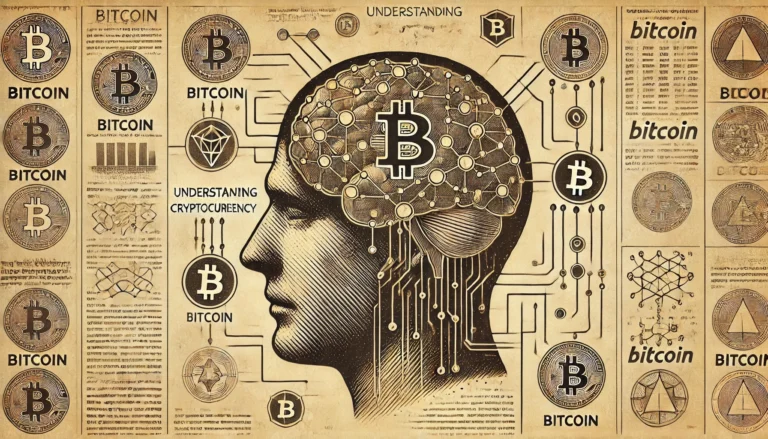Ensuring Data Integrity in DePIN with Blockchain Technology
Introduction
In today’s interconnected world, the need for secure and reliable data management is more critical than ever. Decentralized Physical Infrastructure Networks (DePIN) have emerged as a revolutionary approach to managing physical infrastructure using blockchain technology. By leveraging blockchain’s inherent characteristics of immutability, transparency, and cryptographic security, DePIN ensures data integrity, thereby fostering trust and efficiency in decentralized systems.
What is DePIN?
Decentralized Physical Infrastructure Networks (DePIN) are blockchain protocols designed to construct, maintain, and operate physical hardware infrastructure in a decentralized manner. Unlike traditional centralized systems, DePIN disperses control across a network of participants, enhancing resilience and efficiency. Examples of DePIN applications include decentralized energy grids, where individual producers and consumers (prosumers) interact directly without intermediaries, and decentralized storage networks like Filecoin, which utilizes unused storage capacity across a distributed network (CoinTelegraph) (Oodles Blockchain).
How Blockchain Ensures Data Integrity
Blockchain technology is pivotal in ensuring data integrity within DePIN by providing a decentralized and tamper-proof ledger. Key principles such as immutability, transparency, and cryptographic security underpin this technology.
Immutability: Once data is recorded on the blockchain, it cannot be altered. This ensures that all records are permanent and unchangeable, providing a reliable historical record.
Transparency: Blockchain’s transparent nature allows all participants to view and verify transactions in real-time. This openness enhances trust among users by ensuring that all data is visible and verifiable.
Cryptographic Security: Blockchain employs advanced cryptographic techniques to secure data. Each transaction is encrypted and linked to the previous one, forming a secure and interlinked chain of data. This makes unauthorized modifications virtually impossible (CoolWallet) (Datafloq).
For instance, in decentralized energy grids, blockchain records every transaction related to energy production and consumption. Smart contracts automatically execute and record these transactions when predefined conditions are met, ensuring efficiency and reliability in energy distribution (CoinTelegraph).
Key Benefits of Blockchain for Data Integrity in DePIN
Security: Blockchain protects data from unauthorized modifications and cyberattacks, providing a secure environment for data transactions.
Transparency: The transparent nature of blockchain allows participants to verify transactions in real-time, fostering trust and accountability within the network.
Trust: By providing a tamper-proof record of all transactions, blockchain builds confidence among network participants, encouraging broader adoption and participation.
For example, in decentralized storage networks, blockchain ensures that all data stored is secure and can be accessed only by authorized parties. This level of security and trust is crucial for sensitive data, such as financial records or personal information (MXC).
Challenges and Considerations
Despite its numerous advantages, blockchain technology faces challenges related to scalability, regulatory compliance, and interoperability.
Scalability: As the volume of transactions increases, blockchain networks may struggle to maintain performance. Innovations such as sharding and layer-2 solutions are being developed to address these issues.
Regulatory Compliance: Ensuring compliance with existing regulations is essential for the widespread adoption of DePIN. This includes adhering to data protection laws and financial regulations.
Interoperability: Effective communication between different blockchain platforms and legacy systems is crucial for the seamless operation of DePIN. Developing standards and protocols for interoperability remains a significant challenge (Oodles Blockchain) (Datafloq).
Future of Blockchain and DePIN
The future of DePIN is promising, with continuous advancements in blockchain technology expected to enhance its capabilities. Innovations such as sharding, sidechains, and the integration of blockchain with emerging technologies like IoT and AI will further expand its potential. These advancements will address scalability issues and improve usability, making DePIN a more robust and efficient solution for managing physical infrastructure (CoolWallet).
FAQs
What is the primary role of blockchain in DePIN? Blockchain ensures data integrity by providing a secure, immutable, and transparent ledger for recording transactions within DePIN.
How does blockchain improve the security of data in DePIN? Blockchain employs cryptographic techniques to encrypt and secure data, making unauthorized modifications virtually impossible.
What are the potential drawbacks of using blockchain in DePIN? Challenges include scalability issues, regulatory compliance, and interoperability between different blockchain platforms and legacy systems (Datafloq).




